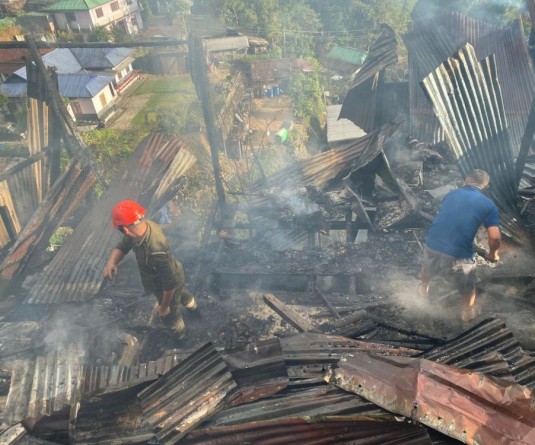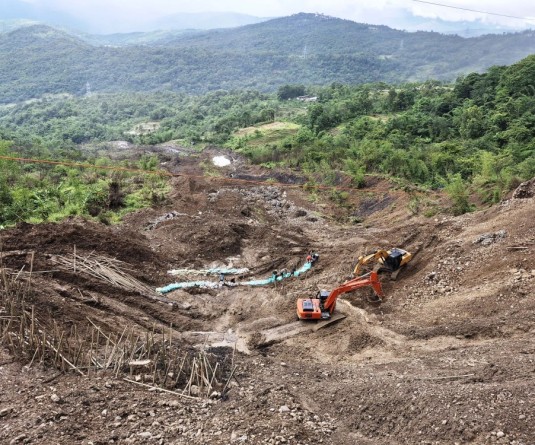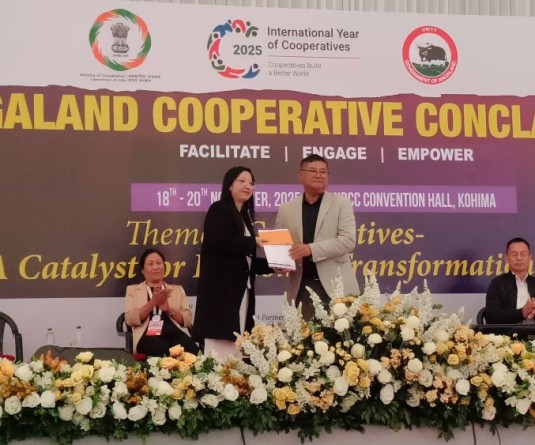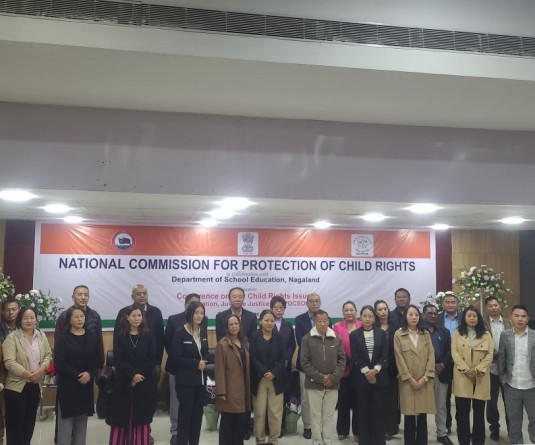
Gendered Practices & Emerging Discourses in Naga society
Morung Express News
Dimapur | June 23
Starting off the second session on Gendered Practices and Emerging Discourses in Naga society, Dr. Walunir Tzudir pointed to layers of “male-centric structures” existing in society and argued that those structures, while relevant in the past have become “archaic” and irrelevant.
In this regard, Dr. Walunir insisted that there was a need to review and reassess customary laws. While admitting that we cannot “blast away” those structures, Dr. Walunir instead suggested modifying them to suit with the changing times.
Panelists for the second session were: Khekiye K. Sema, IAS (Retd); Achumbemo Kikon, Spokesperson NPF; Peter Rutsa, Social Activist; Nzanmongi Jasmine Patton, Naga Scholars Association (NSA); Joshua Sheqi, Lawyer, High Court, Kohima Branch; K. Ela, Prodigals Home; and Dr. Anungla Aier, Principal, Kohima Science College.
Khekiye K. Sema said that with changing times and when everybody was talking about progress and development, women who are equally competent with men should be included in decision making bodies. “Customary laws must actually change and women must be relevantly included in decision making bodies,” he added.
He observed that the Naga people instead of using Article 371 A for strengthening and protecting themselves, were using it to “cut our own limbs.”
Khekiye also said that the Nagaland Legislative Assembly has not reviewed any laws except on natural resources and stressed on the need to create a statutory body to amend and review Naga customary laws.
NPF Spokesperson, Achumbemo Kikon said women need to be taken along with progress and development but added that the government was confused since several women folk themselves protested on the streets against their quota in the Urban Local Bodies.
Kikon likened women participation in the ULB protests to 19th century America where women themselves protested against women suffrage rights.
Social Activist, Peter Rutsa meanwhile said that at times Naga identity seem to be in conflict with the search for a better future. While calling for the need to review customary law, he was of the opinion that depending too much always on the customary laws would take the Nagas backward instead of forward.
Nzanmongi Jasmine Patton, member of Naga Scholars’ Association (NSA), viewed women’s quota as a long denied right and not a privilege. She spoke about the importance of women hohos/organizations in order to highlight the problems faced by women. Even as Naga society has been perceived as an egalitarian society, Jasmine said, Naga women were like a stringed bird that can freely move around only within the length and perimeter of the string attached to it.
Advocate, Joshua Sheqi shared on the issues relating to codifying customary laws. According to Sheqi, by taking into account “what customary law was, what is and what should it be”, the reviewed customary laws could come into use.
However, Sheqi maintained that most of the existing customary laws would not qualify or fit in to currently existing laws.
Talking on adoption and inheritance in Naga society, Director, Prodigal’s Home, K Ela said that Naga people neither follow proper guidelines of the Central Adoption Research Agency (CARA) nor the Naga customary laws while adopting a child.
Viewing that adoption in the Naga society is attached to identity, clan, tribe etc., Ela maintained that children should not be victimized after such illegal adoption procedures since many of them lose their identity once adopted. She further informed that a committee is currently working out a child adoption policy for Nagaland.
Principal, Kohima Science College, Dr. Anungla Aier raised the issue of citizenship and stated that the constitution guarantees equal rights to every citizen. In practice though, citizenship is lived in a “very gendered manner”, she insisted.
Arguing that “customary practices oppose universal laws of citizenship,” Dr. Anungla pointed to “structured barriers” which exclude women from socio-religious practices and also deny them access to represent the clan or tribe in decision making bodies.
“Till we break this barrier, we need reservation,” she maintained and further argued that without reservation, no women would be empowered politically or otherwise.
During the ensuing discussions, concerns against codifying Naga customary laws were also raised - the argument being that, different tribes had different customary laws and a uniform code for all tribes would not be possible.
Dr. Aküm Longchari, Editor, The Morung Express, in his concluding remarks called for meaningfully engaging in a dialogue around Gendered Practices in the Naga context and to link it to the broader issues – by dealing creatively with differences and creating space to resolve problems.
Dr. Longchari argued that codifying customary law without first establishing a “Naga Jurisprudence” would limit the values of customary laws. As a long term vision, he suggested that a Naga Jurisprudence – for a Naga legal system needs to be worked out. In the interim, establish a “working definition of customary law “by identifying the commonalities from every “village republic,” he suggested.
He also sought to make a differentiation between “equality” and “equity” stating that while equality aims to ensure that everyone gets the same thing, equity involves empowering people with what they need and not what others think they need.
Dr. Longchari further emphasized the necessity for Nagas to make a shift from the politics of rights to a politics of justice, in order to build a just Naga society.






